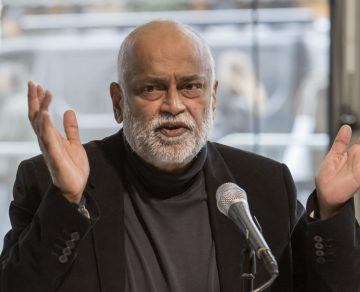Arjun Appadurai in The Wire:
 We are witnessing India’s first mass movement since the movement for national Independence, which began in the 1880s and ended in 1947. At no time since 1947 have we seen such an inspiring show of democratic dissent, bringing together students and workers, old and young, Hindus, Sikhs, Muslims, Christians, Parsis and other faiths, Marxists, liberals and traditional nationalists, government servants and corporate leaders, men and women.
We are witnessing India’s first mass movement since the movement for national Independence, which began in the 1880s and ended in 1947. At no time since 1947 have we seen such an inspiring show of democratic dissent, bringing together students and workers, old and young, Hindus, Sikhs, Muslims, Christians, Parsis and other faiths, Marxists, liberals and traditional nationalists, government servants and corporate leaders, men and women.
In this mass movement, women, students and youth in general are the leaders, with Muslims speaking their minds with a courage born out of the sense that other options are non-existent. The Emergency had some of these features, but the broad opposition to Indira Gandhi then recognised that she had some ability to listen, learn and respond, by comparison to the current regime.
At a time when many of us are on the barricades, either physically or politically, it is easy to be caught up in the news of the day, the week or the month. At such times, we need to bear India’s long history in mind and put our apocalyptic moment in long-term perspective. In this light, I have three observations to offer.
More here.
